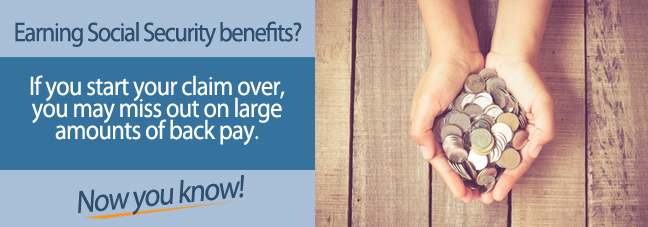If you’ve been denied disability benefits, then you have to make a quick decision about how to proceed. The Social Security Administration (SSA) only gives you a few days to decide if you’re going to appeal, and failing to respond in time will get your claim permanently dismissed.
Disability benefits from the SSA offer income you can count on for paying bills, covering medical costs, and dealing with everyday living expenses. Filing an appeal is only one option for what to do if you’ve been denied though.
You can also wait and see how things go in the future. If your condition improves, you can return to work or seek new employment. If your condition worsens, then you can file a new application for disability. You can also look for other benefits or public assistance programs to help you in the mean time.
Appealing a Disability Denial
An appeal takes a long time and most of that time is simply spent waiting for a disability hearing date to arrive. The wait can be cumbersome and stressful, but the rate of approval at the appeals level is often significantly higher than at any other stage in the disability review process. This may make it worth it for you.
Just keep in mind though, there is no guarantee that you’ll be approved for benefits even once you get your time before the administrative law judge (ALJ) at the hearing, so you’ll have to decide if an appeal is right for you. A disability advocate or attorney may be able to help you make this decision. He or she can explain the appeals process and can help you prepare for your appeal too.

Taking the Wait-and-See Approach
Some applicants decide not to file an appeal and instead wait to see how their disability changes over time. If you think your condition may improve, then you may try to find a new job or return to work later on down the road. If your condition worsens instead, you can always file a new disability claim and potentially be approved for benefits at that point.
The downside of the wait and see approach is that you’re not taking any action and will still be without the income disability would provide. Since you’d have to wait for an appeal hearing anyway and would be without support during that time, some applicants see these options as equivalent.
The biggest difference, however, is that if you file an appeal and the ALJ approves your claim, then you’d be paid back benefits (known as back pay), which could be thousands of dollars. If you don’t file an appeal, then you’re not entitled to any back benefits, even if you file for disability again in the future and get approved.
Finding Other Sources of Financial Support
Whether you decide to file an appeal or not, you’ll need to seek out other forms of support or public assistance to help you meet your financial obligations and everyday living costs. Your local department of social services is a good place to start. Based on your living situation, financial standing, and other factors, you may qualify for other benefits, like SNAP (food stamps), TANF (cash benefit), or local rent, mortgage, or utility assistance programs, for example.
Getting Help with Your Social Security Disability Claim
The SSA often gives applicants only 10 days to decide if they wish to file an appeal once denied benefits. You’ll have to work quickly, weight your options, and decide how to proceed. A disability advocate or attorney can help you make the right decision and may be able to advise you on your chances of approval at the appeals level as well.
Disability lawyers offer free consultations. They also work on contingency, which means they only get paid if you get approved for disability, so there’s no harm in contacting a lawyer to talk through your options and make the most informed decision possible.